Interim Director's Welcome
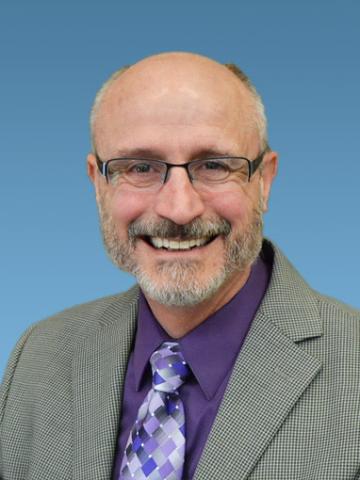
My name is Zach Adcock, and I am the Interim Director of Facilities Operations and Maintenance (FOM). Our team is responsible for the maintenance and structural operation of all UT Austin spaces. In recent years, resources have been constrained and/or reduced, while new facilities, programs, and increasingly complex systems have been added. I intend to focus the unique skills within all three of the division’s branches on the stabilization, and ultimately the reversal, of these divergent trends. It is fundamental for the long-term good of the university, our clients, their missions, and FOM personnel.
To achieve this endeavor, we must recommit ourselves to a number of initiatives:
- Clearly communicate the levels of service provided by FOM to the campus community.
- Based on these levels of service, refine a preventive maintenance program that efficiently manages the risk to the university's core mission for the life of the facility.
- Train and support our people to ensure they have the tools and knowledge to meet the increasing technical demands required and provide incentives to recruit and retain the most qualified technicians.
- Quantify and communicate the risk we accept or avoid that result from the effectiveness of the initiatives above.
The challenge is daunting and the solutions are complex, but the consequences of denial are extreme. Fortunately, for me the challenge is its own reward. We have before us a great opportunity to transform our operations, allowing us to reach new heights of excellence, efficiency, and client satisfaction while ensuring the university's mission continues uninterrupted. We will do all this, seamlessly, to ensure our students, faculty, and staff have the opportunity to change the world each and every day.
I sincerely thank you for the part you play in this effort.
Putting it All Together
Facilities Operations and Maintenance teams consult each other to solve problems, generate new ideas, and share information. This consultative approach extends to those we work with outside of our division, too. Overall, Facilities Operations and Maintenance supports The University of Texas at Austin's mission, core purpose, code of conduct, and values of learning, discovery, freedom, leadership, individual opportunity, and responsibility.
These form the cornerstone of how Facilities Operations and Maintenance (FOM) delivers services, how our team manages work, and what we expect from every team member.
Our branch teams are:
FOM is more than meets the eye:
We are:
- Collaborative stakeholders in the university's academic and research missions.
- Technically proficient in large-scale and complex facilities operations and maintenance.
- Good stewards of the university's time and money.
| Quick Stats | |
|---|---|
| FOM Staff: | 241 |
| Campus buildings maintained: | 224 |
| Gross sq. ft. maintained: | 15,101,029 |
| Avg. annual work orders completed: | 129,450 |
Need Service?
Facilities Service Center
Main: 512-471-2020
UT Works
General Inquiries: facilities@austin.utexas.edu
Events & Moving:
fs-events@austin.utexas.edu
FOM Feature Story
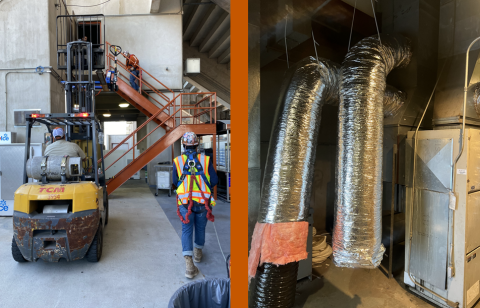
Read our story, Facilities Team Finds Fix for Bellmont Hall Elevators AC Fail, Saves Texas Longhorns Football Season, Academic and Operational Access, to get a behind-the-scenes look at how one of our tenacious engineers led a team to solve an HVAC system issue that had to be resolved quickly, despite the multiple challenges they faced and ultimately overcame--just in time!
This article is also part of our: Values at Work Series
After-hours Maintenance Call Response
A campus as large and complex as The University of Texas at Austin can face facilities-related issues that must be addressed immediately. Facilities monitoring operators on duty from our Building Operations branch respond to after-hours calls and dispatch trade-specialized first responders who are on call. They can address the issue at hand, avoiding extensive property damage and preventing building downtime.
For after-hours emergencies, call 512-471-2020, 24/7.
Technical Expertise: The Tools of the Trade
Facilities Operations and Maintenance (FOM) employees collectively hold over 252 trade licenses, certifications, academic degrees, and other relevant credentials. Our facilities have become more complex and sophisticated over the years. We have a staff with strong technical skills and experience to maintain our buildings and systems efficiently and provide an effective energy and water conservation program. We offer training and development so our staff is well-matched for the needs of a modern university.
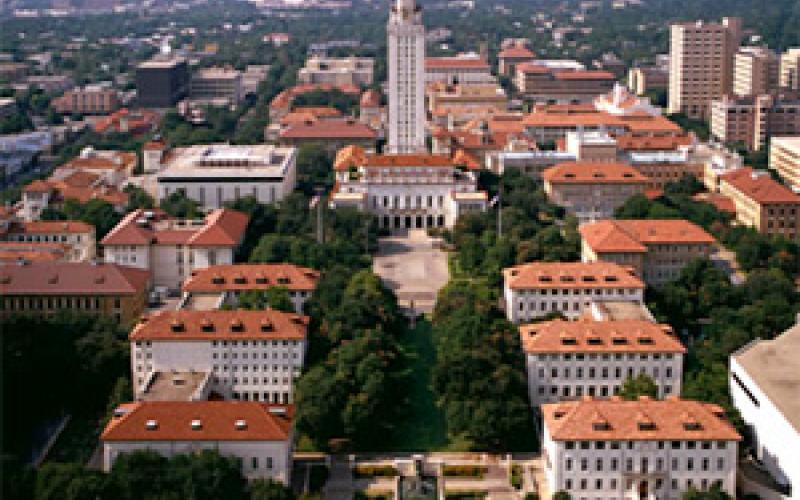
Good Stewards: What FOM Means to the University
FOM brings these benefits to the University:
- Achieving the expected life of our building systems and equipment
- Improving asset reliability – fewer repairs and replacements
- Reducing downtime – less disruption to campus community
- Providing more efficient service at a lower cost
- Properly diagnosing and treating maintenance issues
- Proactively using preventive/predictive techniques
People in spaces work better when spaces work better for people.
What does it mean to provide facilities operations and maintenance to the university? What if we weren’t here?
Like an automobile that needs its oil changed and its parts checked or serviced at certain intervals, if its performance isn’t evaluated and maintenance doesn’t occur, the vehicle doesn’t operate well—or worse, becomes dangerous to its driver. Plus, the cost of repairs can increase as the vehicle condition continues to deteriorate. No car lasts forever, but with proper review and maintenance it can run more smoothly and efficiently at less cost and last much longer, as originally intended.
It’s the same with our buildings on campus. FOM monitors the performance of our building systems and provides proper maintenance, including preventive care.
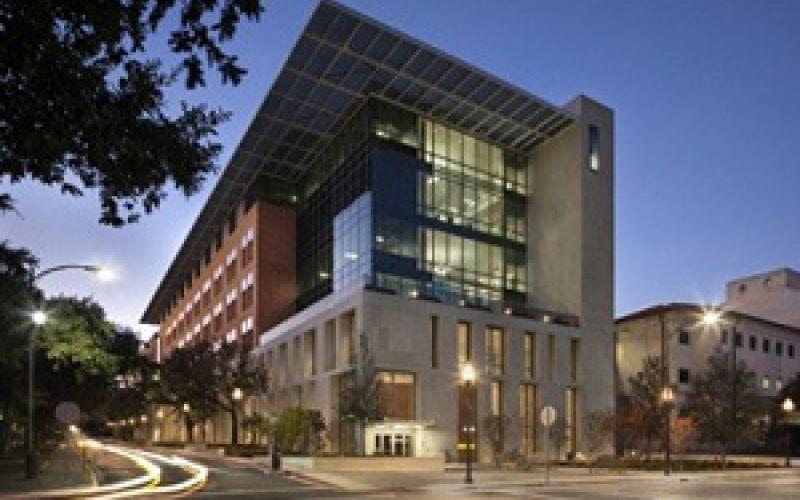
Not Your Ordinary Crew
What makes us unique? How have we increased our value? Here are more ways we benefit the University:
- Our experience in managing specialty environments such as labs and museums avoids costly damage to research, equipment, works of art, and more.
- By using and developing in-house expertise, we can often avoid higher costs with outside contractors.
- We are prepared to face the challenges of one of the largest public universities in the United States—be it campus growth, aging buildings and systems, increasingly complex facility technology, or tightened budgets.
- We bring pride in our work because we know we are supporting the University’s mission.
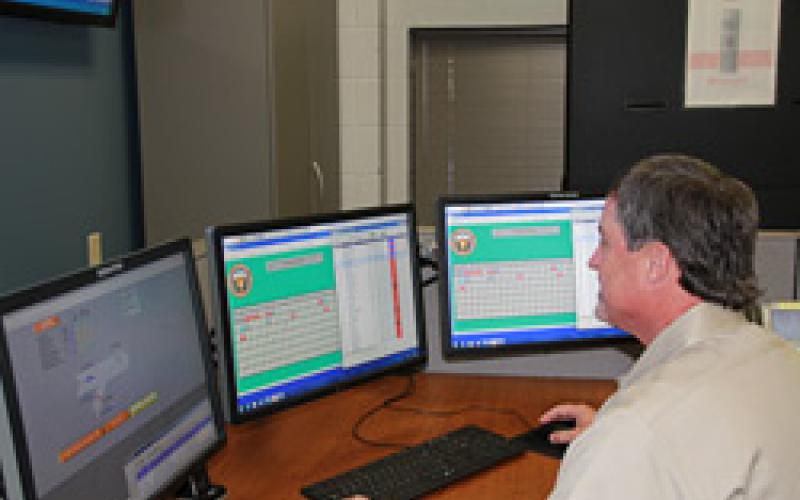
The Proactive Plan
We look for ways to move from reactive mode to proactive, as in these examples:
- Monitoring operation of equipment critical to researchers to avoid damage or loss of valuable research
- Providing engineering and technical support to our field maintenance technicians to achieve real solutions, not patch problems
- Raising the bar on improved customer service through our zone-based strategy
- Reaching out to the campus community to reduce energy and water use for improving conservation

Innovation and Technology
High-tech or low-tech, prevention works!
The best organizations know they must keep evolving, adapting, and growing. It's about being nimble. Facilities Operations and Maintenance teams look for innovative ways to save money, time, or both.
Mobility is a major trend for improving efficiency and communication. We are applying this trend on campus through the use of hand-held devices so our front-line workers can access our work order system from the field.
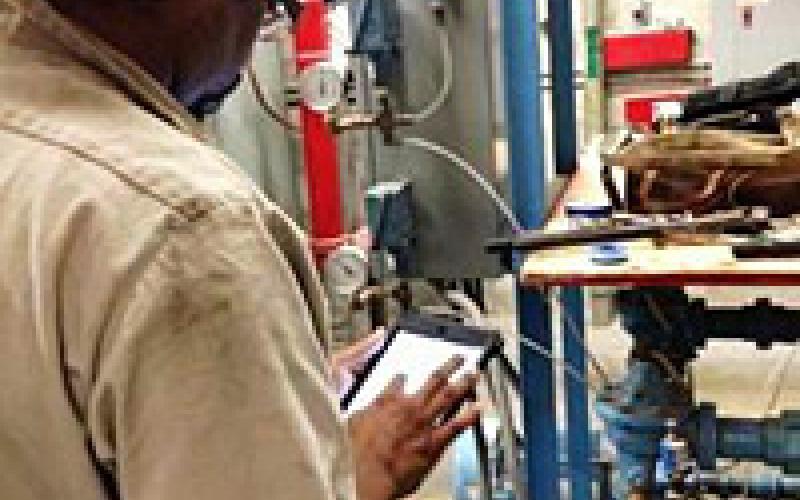
Safety: An Integral Component
Safety begins with communicating with our people to:
- Take those few extra minutes to put their safety first
- Follow shop safety procedures and guidelines, including regular assessments of safety knowledge
- Wear the appropriate personal protective equipment (PPE)
We work closely with our department’s Safety Manager & Programs to:
- Train our employees and provide guidelines for fall protection, asbestos awareness, confined spaces, lock-out tag-out, and other relevant safety areas
- Comply with national, state, and local safety requirements
- Advise on our Arc Flash Analysis Program and other safety programs
- Track number and type of incidents that occur to implement improvements.
Elevator Services
Contact us:
- ELEVATOR TROUBLE? - Call 512-471-2020 or submit a UT Works Request
- ELEVATOR SERVICES - elevator.services@austin.utexas.edu
- ELEVATOR INSPECTIONS - elevator.inspections@austin.utexas.edu
The University is following all State and Federal guidelines regarding elevator safety and operation as well as the latest ASME A17.1 and ASME A17.3 safety codes. Elevator certificates are available for review at the Elevator Services offices within FC3. For more information, contact 512-232-7526.
Our Services
Our Elevator Services manages the university’s vertical transportation systems and is responsible for the operation, maintenance, and inspection of more than 570 pieces of equipment on campus. This includes equipment, such as elevators, escalators, wheelchair lifts, and dumbwaiters. We also provide and review equipment specifications for both modernization and new construction projects.
What you should know
If you need to report a problem with an elevator or escalator, call the Facilities Service Center at 512-471-2020. Provide a complete description of the problem and the unit (location, etc.) when you call.
Entrapment
Should you ever become stuck in an elevator, remain calm and use the in-car emergency phone to call for help. Do not attempt to exit the elevator by yourself. You are much safer in the cab and can be injured if the elevator moves automatically. A technician will be dispatched and arrive as quickly as possible to assist you and correct the problem.
About Campus Elevators
Various types of elevator units on campus range from the most common to some of the more elaborate and unusual. Below are just a few examples of the many types of elevators you can find around campus.
Highly Specialized Elevators
The Engineering Teaching Center has a roof-top elevator, which serves two floors within the building as well as a landing on the roof. This elevator is designed for normal traffic between floors of the building and has restricted key operational use for transporting large experimental equipment to the roof.
The Mezes building has another unusual elevator that is the only one of its kind in the State of Texas. It has three openings in the cab, one front, and two side openings. It serves eight landings, with nine openings between Mezes and Benedict halls. The unit was specially designed to serve the split levels of these two buildings and the infill area between them.
High-Speed Gearless Cars
BEL (Bellmont hall), ECJ (Ernest Cockrell Jr. Hall), PMA (Physics, Math, and Astronomy), and the MAI (Main Tower) are equipped with high-speed gearless cars. These units travel 500 feet per minute and are designed to shuttle hundreds of people between floors. All are equipped with microprocessor controls. These five units answer more than 6,000 calls, and travel a distance of roughly 270 miles a day.
Other Elevators
There are numerous other elevators and lifts that move everyone on campus safely to and from their classrooms and offices. There are stage lifts, which move entire orchestras or performances to different levels in campus concert halls and theatres. There are also ADA lifts (vertical and inclined platform lifts) which provide vertical assistance to those with mobility impairments.
Elevator FAQs
How many elevator mechanics service the equipment at the university?
We have seven full-time service mechanics.
Where are the fastest elevators on campus?
The Main Tower’s elevators convey passengers at 600 feet per minute.
What is the oldest original elevator on campus?
The oldest elevator is the Texas Memorial Museum freight elevator, which was installed in 1937 but is not approved for use by the public.
How many escalators are on campus?
85
What is the largest capacity elevator?
The North End Zone service car has the largest capacity at 14,000 pounds.
Which building has the most pieces of equipment?
The stadium complex with 73 units (47 of which are escalators).
Our client satisfaction survey says: Our overall “scorecard” average range is 90-95%.
Maintenance Operations, a branch of the Facilities Operations and Maintenance division, provides comprehensive maintenance services in support of the University’s operations.
We’re here for you - the students, faculty, and staff who carry out the mission of this university. We appreciate the opportunity to hear from you about how we’re doing. When we don’t get it right, we take your feedback and act on it. You help us to improve. When we do get it right, we share your accolades. Here are recent ones:
Client Satisfaction: What Our Clients Say About Us
Animal Resource Center
Enterprise Business Information Technology Solutions (eBITS)
College of Natural Sciences
UT Bureau of Economic Geology
Utilities, and Energy Management
Dell Medical School
“I am truly grateful for the collaboration, positive attitude, and competency of your teams!”
FOM Management Team
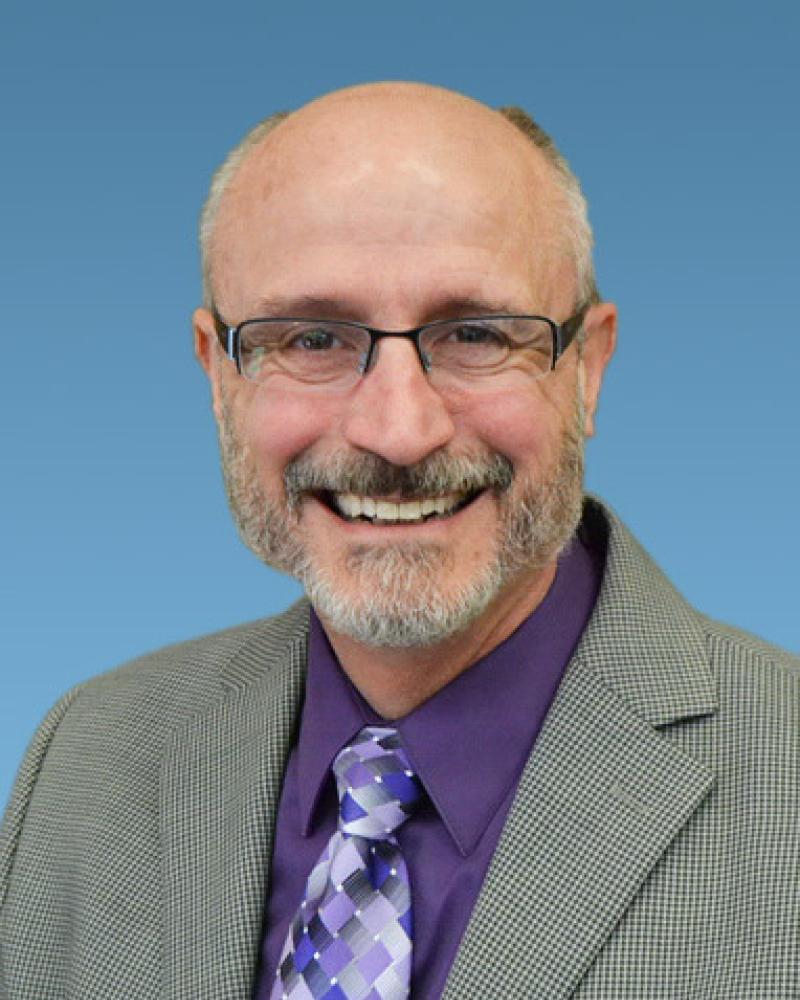
Zach Adcock
Interim Director, Facilities Operations and Maintenance
Associate Director, Maintenance Operations
zachary.adcock@austin.utexas.edu
Zach has over 30 years of experience in facilities engineering and maintenance in the higher education, aerospace, defense, and manufacturing industries. He earned his bachelor’s degree in mechanical engineering from Texas Tech University.
Maintenance Operations, a branch of the Facilities Operations and Maintenance division, provides comprehensive maintenance services in support of the university’s operations.
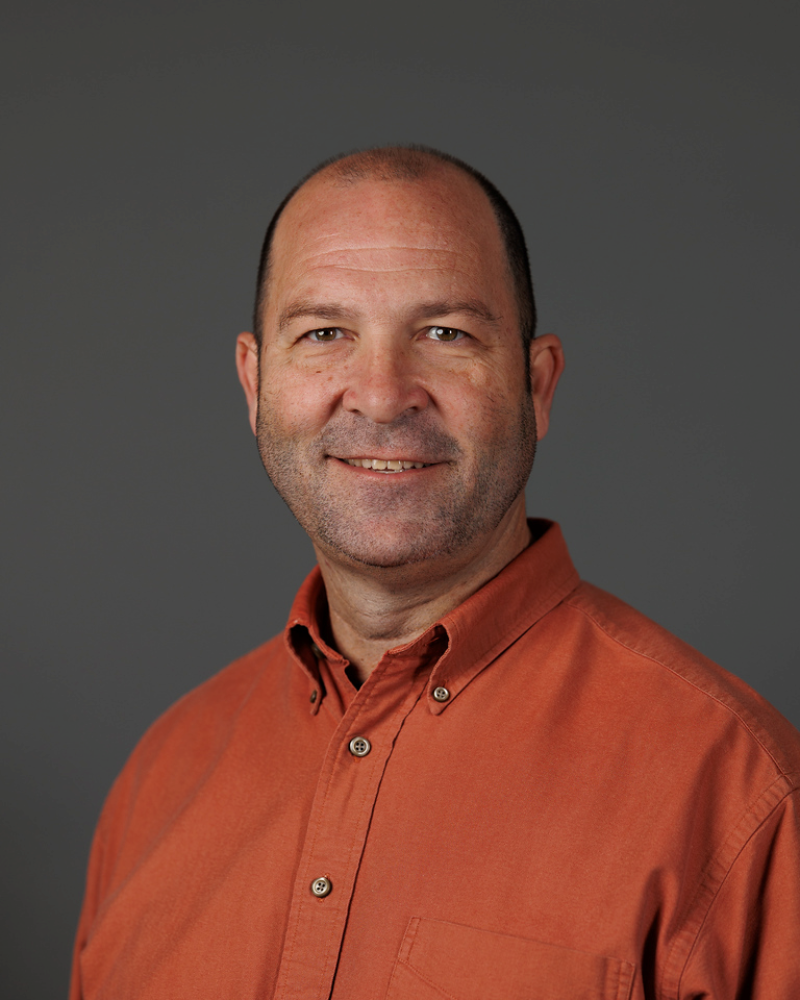
Brian Stokes
Assistant Director, Building Operations
brian.stokes@austin.utexas.edu
Brian has a substantial history with systems engineering, facilities support, and project management. He is a U.S. Army veteran who served on active duty from 1991 to 1994. Brian earned an associate's degree in corrosion technology from Kilgore College in 1997, then his bachelor’s degree in mechanical engineering from The University of Texas at Austin in 2001. Since then he’s harnessed a wide variety of knowledge and experience in commercial and industrial environments.
Building Operations, a branch of the Facilities Operations and Maintenance Division, consists of three main areas of support to university operations:
Sean Mackenzie
Assistant Director, Engineering & Technical Support
sean.mackenzie@austin.utexas.edu
Sean has over 15 years of experience in facilities engineering and construction. For the past 4.5 years, he has worked with the ETS team in FOM. Sean joined UT as an engineer and has since worked as the team lead for the mechanical, electrical, and plumbing (MEP) Projects team within ETS, and also as the interim assistant director prior to his promotion to Assistant Director. Before joining UT in 2021, he served nine years with the special operations community in the U.S. Army. While in college, he worked various trade positions, including in sheet metal and HVAC service. After graduating, he worked with a mechanical contractor on a $4.5 billion data center before joining Mortenson Construction where he managed the MEP scope for hyper-scale data center design-build projects and over 1.5-gigawatt utility-scale solar construction. In 2016, he started working in MEP engineering and design. Sean is certified as a LEED Accredited Professional (AP), Building Commissioning Professional (BCxP), and holds his International Code Council (ICC) Journeyman Mechanical card. He earned a Bachelor of Science in construction management from Colorado State University. His accomplishments include being recognized at UT with a President’s Exemplary Service Award.
Engineering and Technical Support (ETS) is a branch of the Facilities Operations and Maintenance Division. This team consists of technical experts in several areas with credentials including Professional Engineer (PE), and Qualified Commissioning Process Provider (QCP). This branch provides five main areas of support to university operations:

Erin Dillon
Senior Administrative Associate
erin.dillon@austin.utexas.edu
Erin has experience in customer service, teaching, and administrative services. She started her career with UT at Zone 2 Maintenance as an administrative assistant. Prior to UT, she was a bartender at Alamo Drafthouse and a teacher in Japan. She also holds a B.A. in anthropology, east Asian studies, and history from The University of Texas at Austin.
